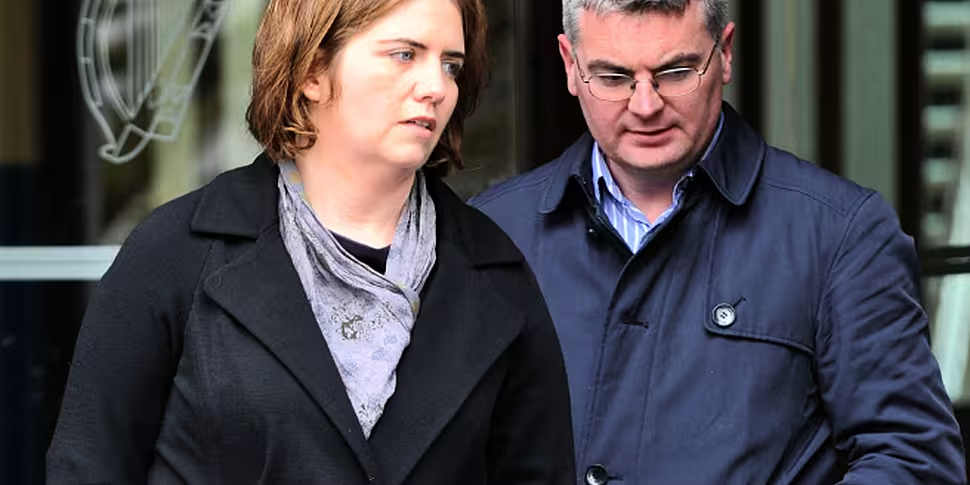The first expert witness is to be called to give evidence today at the inquest into the death of Savita Halappanavar.
The dentist, 31, died from septicaemia on October 28th last at Galway University Hospital, following a miscarriage.
Her husband Praveen says she made 3 requests for a termination.
Day 5 of the inquest will hear from a nurse on the ward who contacted Savita Halappanavar's consultant about her deteriorating condition around two hours before she miscarried her baby.
Dr Paul Naughton, a consultant anaesthetist on call two days later on Friday October 26th last will also give evidence to the inquiry.
And the inquest will hear from the first of Coroner Dr. Ciaran McLoughlin's 5 expert witnesses, Dr Susan Knowles, who is a consultant microbiologist at the National Maternity Hospital.
After the weekend the inquest will resume next Wednesday.
Irish Times reporter Kitty Holland broke the story late last year - she spoke to Breakfast this morning about the week's evidence and what we can expect to hear today:
Slow blood test
Yesterday, a microbiologist told the coroner it would be of concern to her that a blood sample from Savita Halappanavar took over 3 hours to reach the laboratory for testing.
However Consultant Deirbhile Keady said the right antibiotics were administered, even before the results which showed the presence of infection became known.
The inquiry heard a blood sample taken at 7am on the day Savita Halappanavar lost her baby did not reach the laboratory until after 10am that morning.
Asked by Praveen's lawyers why she succumbed to the infection the Doctor replied that patients have different outcomes, 'We don't always know why'.
Meanwhile Praveen's solicitor Gerard O'Donnell says a meeting with the Chairman of the Health Service Executive (HSE) clinical review to discuss the draft final report into Savita's death will most likely be put on hold.
Pictured above (left) is Dr. Deirbhile Keady
Midwife regrets remark
Praveen Halappanavar has said he forgives the senior midwife who told his wife Savita that terminating a pregnancy is not allowed because this is a 'Catholic country'. He has also thanked Ann-Maria Burke for her honesty in admitting the remark during her testimony at the inquest in Galway on Wednesday.
Ann-Maria Burke said the 31-year-old diagnosed as miscarrying was upset and asked her why, unlike India, the baby could not be taken. The inquest heard the Hindu faith was mentioned and she was trying to be sensitive and throw a light on Irish culture.
Coroner Dr. Ciaran MacLoughlin put it to the midwife that her comment had gone all around the world, 'public hospitals do not follow religious tenets or dogma of any persuasion,' he said.
The midwife replied that it was was a chat and was not anything to do with providing care. 'I was trying to be as kind as I could...I'm sorry I said it'.
Praveen also said he sticks to his claim that Savita's Consultant Obstetrician Dr. Katherine Astbury gave a similar explanation as to why the 17-week pregnancy of his wife could not be terminated after she had been told she was miscarrying. The doctor denies ever mentioning religion.

'I was trying to be as kind as I could...I'm sorry I said it' - Ann-Maria Burke
'Policy & system failures'
The inquest has also heard that in another country Savita Halappanavar would have been given the option of aborting the pregnancy a day or two before she miscarried.
In her evidence Consultant Obstetrician Dr. Katherine Astbury agreed that there were policy and system failures in the care of Mrs. Halappanavar at the hospital.
Hospital guidelines stipulated that she should have been observed every 4 hours when her membranes ruptured early Monday morning but were not followed.
Questioned by Praveen Halappavar's lawyers Dr. Astbury agreed the risk of infection following a rupture was 30 to 40% but the risk of sepsis was 0.5% and death 0.1%
She said she acted under the guidelines and Irish law does not allow for a pregnancy to be terminated even if it is unviable unless there is a risk to the life of the mother.
She agreed she was inhibited by the law and that in a neighbouring country Savita would have been given the option of terminating the pregnancy a day or two before she miscarried.
Background:
- Abortion has been legal in cases where there is a substantial risk to the mother's life since the 1992 Supreme Court ruling on the X Case
- The ruling included a provision to allow abortion when there is a threat of suicide after a teenage rape victim asked the courts for permission to travel for an abortion
- No legislation on the ruling has been enacted
- The European Court of Human Rights ruled the State violated the rights of a cancer survivor who had to travel for a termination
- The Department of Health says it will introduce a combination of legislation and regulations for doctors to abide by, having studied an expert group's report on the European ruling
New abortion laws
Meanwhile the government is to publish new abortion laws in July. At the moment doctors must treat an expectant mother and her unborn baby as equals. But medical intervention is allowed to save the life of a woman in limited circumstances.
It is claimed there has been confusion over the laws and that the new regime will provide clear procedures.
Last year an expert group report recommended a combination of regulations with legislation to be introduced to provide legal clarity to doctors.









